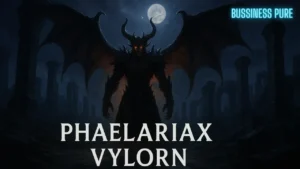Antolohe: Exploring the Hidden Meaning, Cultural Roots and Modern Mystery
Introduction
The term antolohe has recently appeared across digital platforms, sparking widespread curiosity. Unlike traditional cultural or geographical terms with well-documented origins, antolohe stands as an evolving mystery. Some view it as a hidden land, others as a cultural philosophy representing unity, identity, and a return to authenticity. This article explores every known interpretation of antolohe, uncovering its emerging significance in modern conversations.
Meaning and Origin of Antolohe
Despite its growing presence online, the origin of antolohe remains unconfirmed. There is no verifiable record linking it to any specific history, language, or map. Instead, antolohe appears to exist through collective imagination. Its undefined nature gives it strength—allowing people to project meaning onto it.
Cultural Interpretation of Antolohe
In cultural contexts, antolohe is often interpreted as a symbol of heritage and identity. It represents the preservation of traditions while welcoming progressive ideas. It is imagined as a bridge between generations, reminding communities to stay rooted even as they grow.
Philosophical Symbolism of Antolohe
Philosophically, some interpret antolohe as a reflection of inner peace and balance. It symbolizes the search for a place or mindset where one finds purpose, clarity, and connection to deeper values. Rather than defining a physical location, antolohe signifies a state of being—calm, grounded, and meaningful.
Antolohe as a Hidden Destination Concept
A fascinating interpretation of antolohe describes it as a hidden paradise—an untouched destination far from modern chaos. Travel-inspired writers imagine it as a serene location filled with nature, culture, and purity. Although no official records confirm its existence, the idea of antolohe appeals to those who dream of discovering untouched worlds.
This version of antolohe represents humanity’s longing for authenticity. In a time when travel is often commercialized, antolohe embodies the hope of finding a place that remains pure and undiscovered.
Digital Presence and Modern Relevance
The modern rise of antolohe can be traced to the digital world. It circulates through blogs, creative articles, and speculative discussions. Unlike traditional terms rooted in books or historical texts, antolohe thrives in the imagination of online communities.
Social platforms have allowed antolohe to grow beyond definition. Each writer or reader adds a new layer to its meaning—transforming it into a shared cultural puzzle. This digital evolution makes antolohe not just a term, but a modern myth shaped by collective thought.
Why Antolohe Attracts Global Curiosity
There are several reasons why antolohe captivates audiences:
- Mystery: With no fixed definition, it invites exploration.
- Symbolism: It offers a metaphor for identity, peace, and cultural preservation.
- Creativity: Writers and thinkers can mold antolohe into any narrative or concept.
- Escape: It represents an imagined refuge beyond the noise of modern life.
In a world seeking deeper meaning, antolohe stands out as a symbol of something greater—something elusive yet emotionally powerful.
Antolohe in Storytelling and Imagination
Many creatives use antolohe as a fictional element in stories, poems, and thought pieces. It can be portrayed as:
- A lost kingdom
- A philosophical realm of harmony
- A spiritual journey
This imaginative flexibility sets antolohe apart from conventional terms. It is both a place and an idea; a destination and a state of mind.
Future of the Antolohe Concept
The future of antolohe depends on how people continue to shape it. It may evolve into:
- A cultural movement focused on heritage and mindfulness
- A metaphor used in literature and art
- A symbolic representation of unseen worlds
As long as people seek meaning beyond reality, antolohe will continue to evolve, carrying layers of interpretation with it.
Conclusion: The Lasting Spirit of Antolohe
In the end, antolohe is more than a word—it is a reflection of human curiosity. It represents the search for belonging, for a hidden truth, or a peaceful place beyond distraction. Whether real or imagined, antolohe invites individuals to pause and question: What are we truly searching for?
Its power lies in mystery. It allows each person to create their own meaning, making antolohe a living concept—shaped not by facts, but by the human heart.
Frequently Asked Questions (FAQs)
1. What is the concept of antolohe?
Antolohe is an emerging term often described as a symbolic place or cultural idea representing harmony, identity, and exploration.
2. Is antolohe a real location?
There is no confirmed evidence of antolohe as a physical place. It is widely considered a conceptual or fictional destination.
3. Why is antolohe popular online?
Its mystery, flexibility, and poetic nature make it popular among writers, bloggers, and digital communities.
4. Can antolohe have multiple meanings?
Yes, antolohe is intentionally undefined, allowing different people to interpret it as culture, philosophy, or imagination.
5. What does antolohe represent emotionally?
Emotionally, antolohe symbolizes the human search for peace, authenticity, and a deeper connection to values or origins.





